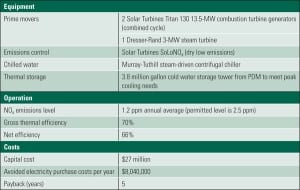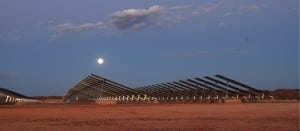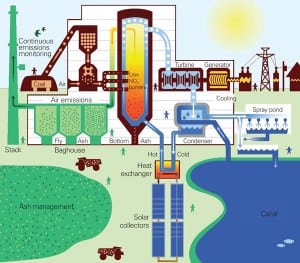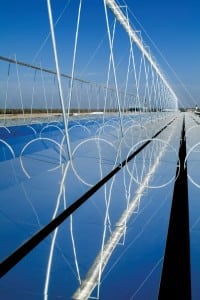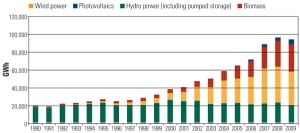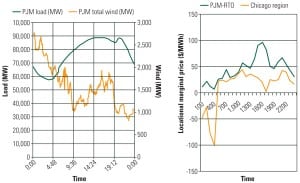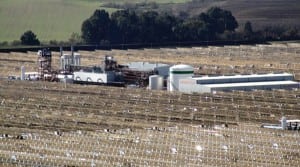Solar
-
Gas
Smart Power Generation at UCSD
The University of California, San Diego has been accumulating awards for its savvy use of a constellation of power generation and energy-saving technologies. The campus already controls a fully functioning microgrid—including a cogeneration plant—and, as befits a research institution, is constantly looking for new ways to make its energy system smarter. This “living laboratory,” as campus leaders like to call it, demonstrates what it takes to build a smarter grid and why the effort is worth it.
-
Solar
The Global Smart Grid Scene
Presenters at the inaugural GridWise Global Forum in Washington, D.C., September 21 to 23 had a lot to say about the prospects for smarter grids. This synopsis of facts and opinions shared at the event, which attracted several smart grid A-listers, looks at the major challenges ahead, especially for the U.S.
-
Solar
Australia Fires Up Solar-Diesel Hybrid Plant
Australian company Horizon Power opened the country’s first hybrid solar-diesel power station in August near Marble Bar, and it is readying another for operation in the neighboring town of Nullagine, Western Australia—a region infamous for extremely hot temperatures. The power stations are the first “high penetration, hybrid solar-diesel systems” in the world, claims Horizon, adding […]
-
Solar
What Utility Executives Think About the Smart Grid
This summary of results from a recent Platts/Capgemini survey of North American utility executives looks at what respondents had to say about all things related to the smart grid. Nearly half of respondents’ utilities have a smart grid strategy in place, while the other half said their utility has one in development.
-
Coal
Xcel Energy Fires Up Solar/Coal Hybrid Demonstration
At the end of June, Xcel Energy fired up a demonstration project that integrates a 4-MW parabolic trough solar technology with an existing 44-MW coal-fired power plant.
-
Solar
Solar Capacity Heats Up Worldwide
Spain in July inaugurated another major concentrated solar power (CSP) power station. The 50-MW La Florida parabolic solar trough plant in Alvarado Badajoz (in the west of the country), increases Spain’s solar nameplate capacity to 432 MW—beating out the U.S., which produces 422 MW from solar installations.
-
Solar
The Feed-in Tariff Factor
Most countries are trying to increase the percentage of their electricity supply that comes from renewable sources. But because capital costs for renewable generation still, in most cases, are higher per kilowatt-hour than for fossil-fueled power, governments are looking at all options for encouraging the development of greater renewable capacity. Feed-in tariffs (FITs) are one policy tool that has been used, most notably in Europe. Now North America is testing FITs as well.
-
Solar
Bulk Storage Could Optimize Renewable Energy
A defining challenge for the U.S. electricity industry is to economically integrate renewable energy facilities into grid operations without sacrificing reliability. Bulk energy storage options are commercially proven technologies that enable that integration most expediently. Existing and emerging national and state policy frameworks are supporting their application in projects under development throughout the country.
-
Solar
Feed-in-Tariffs Around the World
Feed-in-tariffs (FITs)—above-retail rates paid for renewable power that producers "feed" into the grid—are gaining momentum all over the world as a means of driving project growth. Here are some of those established and proposed FITs.
-
Solar
Abengoa Solar Begins Operation of 50-MW Parabolic Trough Plant
Abengoa Solar in early May began commercial operation of Solnova 1, the company’s first 50-MW parabolic trough plant. Covering 980,000 square feet with mirrors requiring an area totaling 280 acres (Figure 2), it is one of five planned concentrating solar power (CSP) plants to be built at the Solúcar Platform in Spain. All will use a technology developed by Abengoa with experience gained from a trough pilot built in 2007. Solnova 1 will also be equipped to burn natural gas if sunlight is weak.

